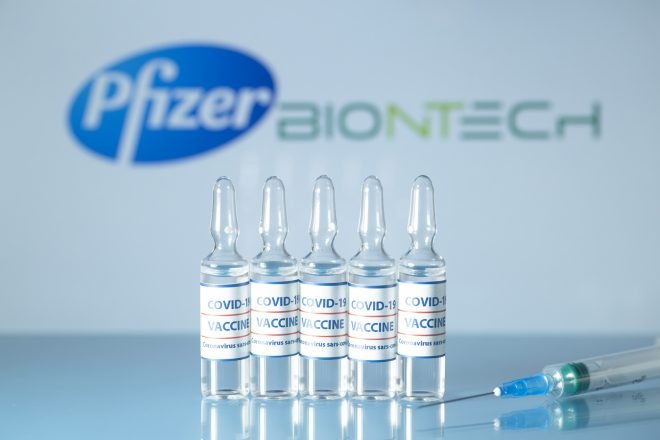Advertisment
Pfizer and BioNTech SE initiate a study as part of broad development plan to evaluate COVID 19 booster and new vaccine variants

Pfizer Inc.and BioNTech SE announced they have begun an evaluation of the safety and immunogenicity of a third dose of the Pfizer-BioNTech COVID-19 vaccine (BNT162b2) to understand the effect of a booster on immunity against COVID-19 caused by the circulating and potential newly emerging SARS-CoV-2 variants.
The study will draw upon participants from the Phase 1 study in the United States who will be offered the opportunity to receive a 30 µg booster of the current vaccine 6 to 12 months after receiving their initial two-dose regimen. The study is part of the Companies’ clinical development strategy to determine the effectiveness of a third dose against evolving variants.
Separately, in order to be prepared for any potential future strain changes, Pfizer and BioNTech are in ongoing discussions with regulatory authorities, including the FDA and the European Medicines Agency, regarding a registration-enabling clinical study to evaluate a variant-specific vaccine having a modified mRNA sequence. This study would use a new construct of the Pfizer-BioNTech vaccine based on the B.1.351 lineage, first identified in South Africa. This could position the Companies to update the current vaccine quickly if the need arises to protect against COVID-19 from circulating strains. In alignment with the updated guidance issued by the FDA regarding emergency use of vaccines to prevent COVID-19 which provides recommendations for evaluating a modified vaccine to address variants, the Companies are hoping to pursue the validation of future modified mRNA vaccines with a regulatory pathway similar to what is currently in place for flu vaccines.
Administering a third dose will provide an early assessment of the safety of a third dose of BNT162b2, as well as its immunogenicity. This study will evaluate up to 144 Phase 1 participants in two age cohorts, 18-55 and 65-85 years of age. The study will include trial participants who received the two doses in the Phase 1 study 6 to 12 months ago in order to assess the boostability of BNT162b2. Thus, the study will evaluate the safety and tolerability of a third vaccination irrespective of the level of antibody titers of the trial participant. Participants will be assessed at the time they receive the third dose, then one week and one month after, and Pfizer and BioNTech plan to study the ability of the sera from those participants to neutralize SARS-CoV-2 strains of interest. The participants will continue being followed in the study for up to 2 years as originally planned.





